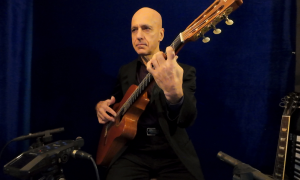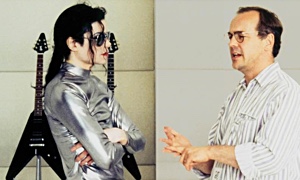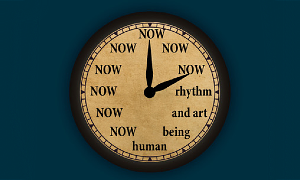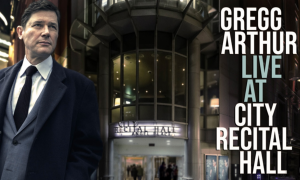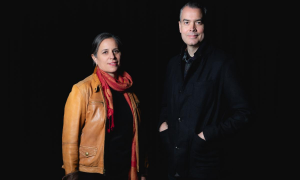In the act of playing music, it is impossible to separate the process from the product. Or, it was. In an important piece of journalism, Eric Felten turns a floodlight on the technological airbrushing of live performances in an effort to insure perfection. Felten's Wall Street Journal essay emphasizes that two recent massive public events in the United States masked actual performance. One was the Super Bowl, with Jennifer Hudson singing “The Star Spangled Banner." The other was President Obama's inauguration, where Yo-Yo-Ma, Itzhak Perlman and associates played “Simple Gifts." In both cases, the performers mimed over pre-recorded sound tracks. Here are two paragraphs from Felten's article, which is headlined, “That Synching Feeling."
In the course of his piece, Felten invokes the British critic John Ruskin's famous essay on the importance of human imperfection in art. To eliminate it, Ruskin said, is “to destroy expression, to check exertion, to paralyze vitality."
In the photoshop age, digital manipulation is possible in every mass medium. That coincides with plummeting standards of objectivity and fairness in too many news organizations. Felten's piece is not only a warning to all who watch live performance: authenticity of what you see and hear is not guaranteed. By implication, it should also make us worry about manipulation of the visual and spoken information on which a free society bases its decisions. There is no area of public life in which we should be more vigilant.
To read the article, go here.
My, what a standard of perfection is now demanded. No longer is a good or even a great performance good enough. Now we must have performances free from the “slightest glitch." And since no one -- not even a singer of Ms. Hudson's manifest talent nor a violinist of Mr. Perlman's virtuosity -- can guarantee that a live performance will be 100% glitch-free, the solution has been to eliminate the live part. Once, synching to a recorded track was the refuge of the mediocre and inept; now it's a practice taken up by even the best artists.
Whatever the motivation, the fear of risking mistakes has led musicians to deny who they are as performers. The most disheartening thing about the Inauguration Day quartet's nonperformance was the lengths to which they went to make sure that nothing they did on the platform could be heard. Cellist Yo-Yo Ma put soap on the hair of his bow so that it would slip across the strings without creating even a wisp of sound. The inner workings of the piano were disassembled. There is something pitiful and pitiable about musicians hobbling their own voices.
In the course of his piece, Felten invokes the British critic John Ruskin's famous essay on the importance of human imperfection in art. To eliminate it, Ruskin said, is “to destroy expression, to check exertion, to paralyze vitality."
In the photoshop age, digital manipulation is possible in every mass medium. That coincides with plummeting standards of objectivity and fairness in too many news organizations. Felten's piece is not only a warning to all who watch live performance: authenticity of what you see and hear is not guaranteed. By implication, it should also make us worry about manipulation of the visual and spoken information on which a free society bases its decisions. There is no area of public life in which we should be more vigilant.
To read the article, go here.












